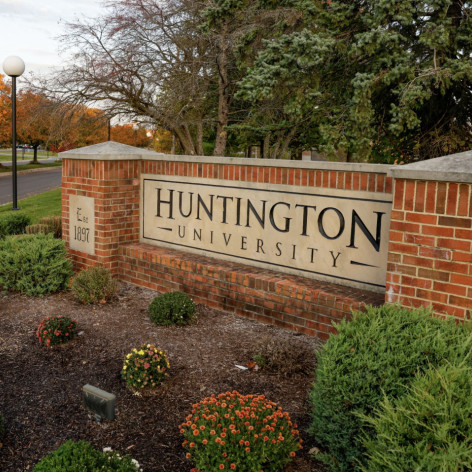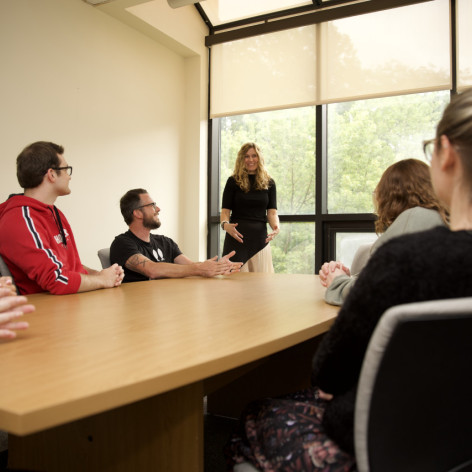LifeSpring Counseling Center a positive addition to community
FOR RELEASE: Tuesday, July 10, 2012
HUNTINGTON, IN When LifeSpring Counseling Center first opened in the fall of 2009, Dr. Jerry Davis worked to make it known in the community."I visited many social service agencies, the courts, probation, and doctor's offices," he says. "I met with various folks in these offices and told them about the clinic." Davis, the clinic director for LifeSpring, also directs Huntington University's graduate counseling program.
Counseling at LifeSpring is provided by graduate students in training, under the supervision of university faculty. LifeSpring serves both to benefit the community and give students necessary experience in their field.
Integrating Christian faith and practice is part of the program for graduate students, and LifeSpring offers a place for them to implement their training with both Christian and non-Christian clients.
LifeSpring is in operation during Huntington's fall, spring, and summer terms, and offers appointments 9am-9pm Monday-Thursday.
Currently the center sees 76 clients ranging in age from 5 years old to 70, and averages 30-40 appointments per week.
According to Davis, the center is always expanding. "I have assigned 60 new clients this semester alone," he says.
"Most clients are seen 10-12 times," says Davis, but in some cases students are able to meet with a client for more than a year. He considers this a strength of the operation, one which will prepare students for a career after graduation.
"Students may get a deep connection to a client with more serious issues," says Davis. "This gives them a much better experience of how therapy progresses over time; very few programs are able to do this."
Most clients are from the lower or lower middle class, and LifeSpring does not charge fees for service. Those able to give a donation can do so, up to $20.
"I think LifeSpring is the single most important positive impact HU is making in our community," says Davis.
Davis hears many positive comments from referring agencies, including the first offices he told about the clinic.
"Often they tell me that someone is being seen in our clinic, or they thank me for the services we are offering," he says.
Davis says that he and other faculty will continue to work hard in training and supervision.
"We want our students to be successful and our clients to receive hope and healing."



